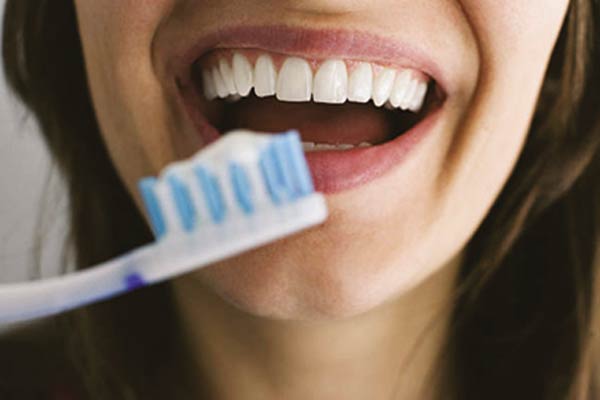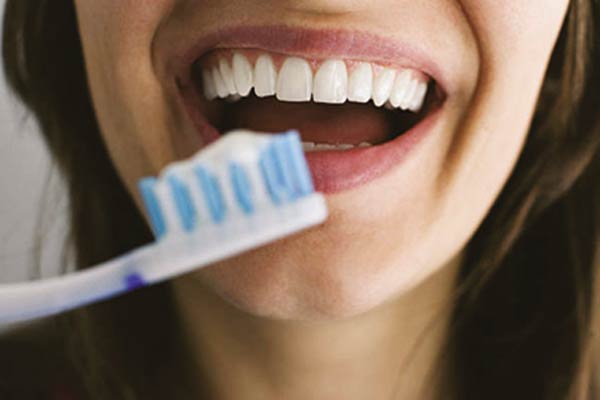Humans have to do three things to survive…breathe, drink water and eat to fill their stomach. Breathing gives oxygen.
Science says that if a person does not get oxygen even for a few minutes, his death starts. In the same way, even if he does not get water or food for a few days, a person will die. Food gives energy to its cells and enables them to perform various functions.
Therefore, food plays a fundamental role in staying healthy and energetic. And it is better that a person should eat such foods from which he can get adequate amount of nutrients i.e. carbohydrates, fats, proteins, vitamins and minerals. But even after eating such useful foods, if a man or woman feels that he is not getting adequate nutrients and is suffering from weakness and incapacity, then he should review his dietary habits.
In fact, a person’s work does not end by eating good food, but he should take care not to perform such actions after eating food that does not allow the nutrients of the food to be properly absorbed in the body.

For example, eating fruits immediately after eating, doing strenuous work, lying down immediately, etc. These types of activities disrupt the system in the human body that absorbs nutrients from food. Below are mentioned actions that should not be performed after eating. In this way, the nutrition of the food will be well absorbed in the body and your health will also be good.
Avoiding fruits
Fruits are healthy, but they also contain natural sugars that ferment in your stomach if eaten right after a meal.
This yeast then causes bloating and gas. This is how digestive system disorders arise. If you want to eat fruit after a meal, wait at least 30 minutes for your stomach to digest the food you have eaten. Eating too much sugar can prevent the body from absorbing nutrients.
Brush your teeth
Be sure to brush your teeth with a good paste after every meal. It is also better to do it without force. In this way, the particles stuck in the tooth gap are removed. If these food particles are not clean, germs settle on them. Their increasing number then makes a person suffer from not only mouth and teeth but also digestive and other organ diseases.
Do not take caffeine
Caffeine, which is often found in popular beverages such as coffee and tea, can prevent the human body from absorbing essential minerals and nutrients, especially iron and calcium.
This interference with the absorption of these important nutrients is of concern to those who regularly enjoy these caffeinated beverages. In order to solve this problem and maximize the absorption of nutrients, it is recommended that you take a cautious approach to caffeine consumption.
A helpful strategy is to consume a caffeinated beverage at least one hour after a meal. By then the food eaten will be digested. Remember, coffee, also known as green tea, also contains caffeine, although its amount is less than that of tea.
Therefore, avoid drinking coffee after eating so that the nutrients of the food are well absorbed in your body. If it is difficult to get rid of the urge to drink after a meal, you can drink herbal tea or a drink that does not contain caffeine.
Taking caffeine after a meal also creates another problem. That is, our esophageal sphincter is affected by it. Asira is a muscle that closes or opens a duct due to its contraction or expansion. If caffeine is taken after a meal, these hormones do not work properly. Thus, gas is produced in the body and the person feels acidity, anxiety and nausea.

Do not eat sweet things
We have a tradition that after the meal there is a period of “sweets”. However, according to modern medical science, this practice is also harmful to health. The reason is that sugar is used in large quantities in sweet foods. These sugars greatly increase the time it takes to digest food. Thus, there are unpleasant and medically harmful effects on the human body. If you have to eat sweet food, eat it in small quantities.
Avoid bathing
Do not bathe with hot or cold water immediately after eating. The reason is that this way the blood pressure is diverted from the abdomen. And this process slows down digestion. This means that the food is digested late and the person experiences indigestion and other ailments. So take a bath at least half an hour after eating and restore your health. Remember, the body needs a lot of energy to digest food. That is why it is important to keep blood pressure on the abdomen.
Lying down is also harmful
Lying down immediately after eating is a habit that can potentially lead to discomfort, heartburn and acid reflux. These conditions disturb the digestive process. To keep them at bay and promote optimal digestion, it is advised to maintain an upright position for a long period of time after eating, ideally at least two to three hours.
By sitting or standing upright, you use gravity to move food through your digestive system more efficiently.
This helps prevent stomach acid from flowing back into the esophagus, making heartburn and acid reflux less likely to occur. Instead, sitting in a reclined or partially upright position can provide comfort while also reducing the risk of digestive upset.
To be clear, acid reflux occurs when the acidic substances in the stomach that help digest food back up into the esophagus after eating. It causes heartburn. To avoid the same situation, it is advised to wait at least two to three hours after eating before going to bed.
This gives enough time for the digestion process to complete. And this is why heavy meals late at night can cause sleep disturbances, indigestion and weight gain. The best way is to eat a light meal a few hours before going to bed at night.
Drink lots of water
Adequate water intake throughout the day is undoubtedly important for overall health, but when it comes to drinking right after a meal, it’s important to strike a balance. Drinking too much water right after a meal is harmful because it depletes the stomach of important acids that help digest food.
Thus various digestive disorders arise. Instead of drinking a large amount of water immediately after a meal, it is beneficial to drink a few sips during the meal. This process helps you stay hydrated without affecting the digestive system. Also maintains proper level of acidity in the stomach for effective digestion.
Medical experts say to quench your thirst by drinking water half an hour before eating. While drinking water at least one hour after eating. In this way, the digestive process is not affected. Nor does a person suffer from acidity, bloating and other disorders. Thus water becomes more useful and healthy.
Avoid smoking
Smoking after eating can increase the risk of developing digestive problems, including acid reflux and stomach ulcers. It also reduces the absorption of essential nutrients as it constricts the blood vessels. If you smoke, consider quitting, and if you can’t, quit at least one hour after eating.
Do not engage in vigorous physical activity
Do not do any strenuous work immediately after eating, rather it is better to sit quietly for some time. This helps in digestion and absorption of food in the body. Engaging in physical activity immediately afterward takes blood pressure away from the digestive system, which is not a good thing. Keep mental and physical stress, depression etc. away from yourself. This condition triggers the “fight-or-flight” response in humans, which diverts blood away from the digestive system and potentially leads to digestive problems.
Exercising right after a meal can also disrupt digestion. You may even experience vomiting, bloating and fainting. However, to improve the digestive process, half an hour after eating a light walk for ten to fifteen minutes is useful. Thus digestion is done in a good manner.
Do not loosen the belt
When you put or reduce pressure around the stomach after eating, this process also disturbs the digestive and gastrointestinal processes and causes various health problems. So avoid loosening your belt after eating. It is also a sign of overeating.
eat more
Overeating is a big mistake that is often caused by distractions like television or smartphones while eating.
It’s important to listen to your body’s hunger cues. The best thing to do is to stop when you are still a little hungry. In this way, you can be protected not only from digestive problems but also from diseases like obesity, diabetes and heart diseases.
(function(d, s, id){
var js, fjs = d.getElementsByTagName(s)[0];
if (d.getElementById(id)) {return;}
js = d.createElement(s); js.id = id;
js.src = “//connect.facebook.net/en_US/sdk.js#xfbml=1&version=v2.3&appId=770767426360150”;
fjs.parentNode.insertBefore(js, fjs);
}(document, ‘script’, ‘facebook-jssdk’));
(function(d, s, id) {
var js, fjs = d.getElementsByTagName(s)[0];
if (d.getElementById(id)) return;
js = d.createElement(s); js.id = id;
js.src = “//connect.facebook.net/en_GB/sdk.js#xfbml=1&version=v2.7”;
fjs.parentNode.insertBefore(js, fjs);
}(document, ‘script’, ‘facebook-jssdk’));



